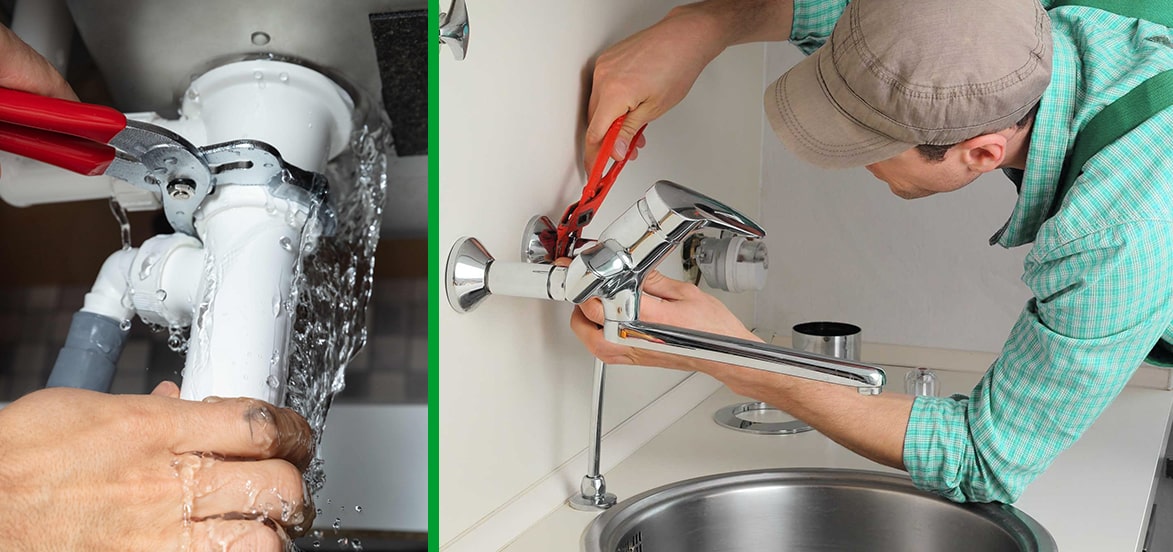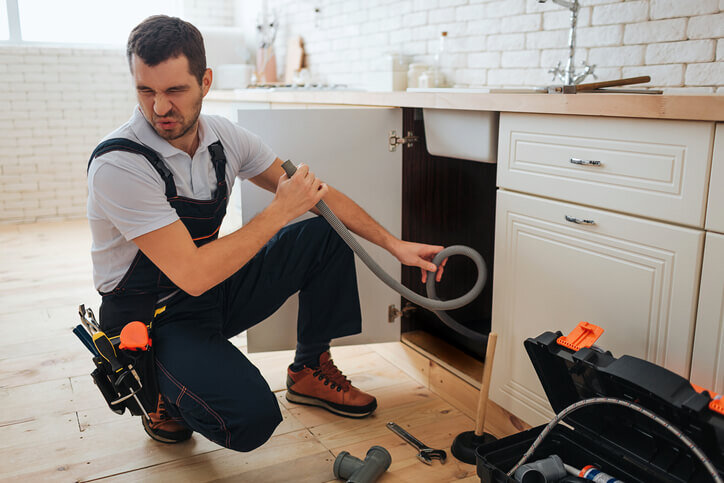Save Your Plumbing Systems: 6 Major Mistakes You Should Avoid
Save Your Plumbing Systems: 6 Major Mistakes You Should Avoid
Blog Article
In this article down the page you'll find a good deal of helpful expertise concerning Don’t Let an Earthquake Damage Your Plumbing.

The key to long-term home appliances, unsurprisingly, is proper upkeep. There's no hard and fast rule that can assure your plumbing appliances a lengthy wear, however you can prevent unneeded damage and also repair work by staying clear of poor plumbing behaviors.
You must stop doing these 6 things else you'll keep calling your plumber over for minor faults.
Flushing everything
Yes, your toilet drain leads to the drains, however that does not mean you should discard just anything down the drain. Numerous 'flushable' materials are actually fantastic clog beginners, as an example floss. Asides keeping obvious non-flushable products like cables and plastics out of your commode, you must also stay clear of flushing cotton buds, menstrual items, wipes, daipers and prophylactics down the toilet drainpipe.
Pouring oil in the sink
We know effectively throwing away grease after a hearty meal is a discomfort. Yet simply putting it away can do lasting damage to your pipes. "The fat and oil can block your drain badly adequate to require you to call a plumber," discusses Dawson. "Plumbing works best when it's well looked after-- not abused with grease."
Using way too much drain cleaner
Making use of a drain cleaner more than one or two times a month is a sign that something significant is going on within your pipelines. Now, as opposed to dealing with the major issue, you go with a quick fix; a fizzy drainpipe cleaner. Rightfully, a drainpipe cleaner will look after the obstruction, but at what expense?
The chemicals in a drainpipe cleaner can speed up the deterioration of your pipes. Add that to whatever underlying trouble is causing the blockage as well as you might have to a significant problem on your hands.
If you experience too many blockages, call your emergency plumber instead of utilizing a drainpipe cleaner.
Not rinsing meals before loading them into the dishwasher
it's called a dish washer, however tossing in meals, pots, and also pans covered in huge food particles can really create some major damages to the appliance, causing lasting problems down the line. "House owners might have to get their dishwashing machine fixed regularly if they do not rinse their dishes before packing, or a minimum of eliminate bigger food items," clarifies Audrey Monell, proprietor of Forrest Anderson Plumbing and also AC in Glendale, Arizona. "Food that gets stuck on recipes creates the dish washer to function harder, which can wear down components quicker, causing issues."
DIYing every little thing
With plumbing, a stitch in time truly does conserve nine. You can stop a fullblown plumbing emergency by calling your plumber at the correct time.
You may have discovered a couple of plumbing hacks from your father, however you should certainly know where to fix a limit and also call an expert. For example, you may have the ability to deal with a clog yourself, however you shouldn't attempt to alter a pipeline. You can inequality pipelines or overtighten a screw, causing more injury and damage than you thought. Calling a plumber is a safe and budget-friendly decision.
Not altering your dishwasher hose pipes
One easy way to guarantee that you utilize your dishwasher for several years is to change the pipe a minimum of when in five years. This additionally makes an application for washing device hose pipes.
Gradually, food bits, soap as well as oil can develop blockages within your pipes. Replacing them on schedule will prevent any presure accumulate that can harm the interior functions of your dishwasher or cleaning equipment.
A strengthened steel braided hose does a great work of extending your machine's usage time.
No winter season precautions
Extreme climate condition misbehave for your pipes, particularly if they're made from steel. You need to insulate your exposed pipes, as well as your water storage tank, even if you have a hot water heater. You need to additionally turn off your garden hose valve and any other external water channels. These channels are outlets for cold; you pipes can begin to ice up from outdoors if you do not.
How Hard Water Damages Your Plumbing and Appliances
Hard water is no stranger to most households across America. This silent invader affects 85% of homes in the United States every day, wreaking havoc on pipes, plumbing fixtures, and water-using appliances.
Should you become a victim of hard water, you must understand exactly what it is and how it affects your plumbing and appliances. This will help you determine the correct measures to put in place to fix or prevent any problems that may arise.
First off, what exactly is “hard” water?
In short, “hard water” is used to describe water that contains relatively high amounts of dissolved minerals, primarily calcium and magnesium, and a host of trace metals. When rainwater falls from the sky (usually in a pure form), it absorbs the hardness minerals from rocks and soil, which changes it from soft to hard water.
What about my plumbing and appliances?
Mineral deposits from hard water can cause buildup on tubs, shower, sinks, faucets. But that’s only a small scratch of the surface. Those minerals can gradually build up inside pipes, fixtures, water heaters, washing machines, and dishwashers. Once they accumulate in those areas, they can clog pipes and create major problems throughout your plumbing system, from reduced water flow to increased pressure on pipes and fixtures.
This limescale buildup might affect some appliances, causing them to operate less efficiently and wear down faster. And the result? Higher energy bills, more (costly) plumbing replacements and repairs, and damaged appliances.
Keep in mind that certain types of plumbing are more susceptible to clogging than others. Copper, PVC, and PEX pipes are more resistant to hard water buildup and corrosion, but they can still get clogged or completely blocked by scale deposits.
How do I know if my water is hard?
White limescale buildup on plumbing fixtures (or any of the other signs mentioned above) is usually a good sign that your water is hard. If you suspect that you have hard water, you can simply shake up a small amount of dish soap and water in a closed container. If the mixture doesn’t create a lot of suds, you probably have hard water.
The most precise method, however, is to test your water with a DIY test kit (sold online or at local home centers or hardware stores) or send a water sample from your tap to a local lab to be tested. Be sure that you understand the nature of the test, the water condition being measured, and the significance of the test results.
Another way to obtain an estimate of water hardness is to check your annual water quality report to see if your water provider has reported any instance(s) of water hardness in your water supply.
https://www.springwellwater.com/how-hard-water-damages-your-plumbing-and-appliances/

As a passionate reader about Leak Detection and Repair Without Destroying Your Home, I assumed sharing that topic was beneficial. I beg you take the opportunity to share this blog if you enjoyed reading it. Thanks a bunch for your time. Come back soon.
Visit My Site Report this page